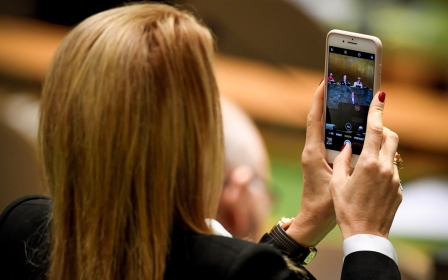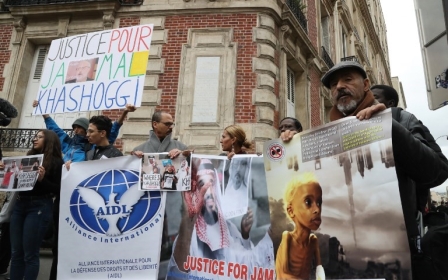Saudi dissident sues Israeli software firm for helping Riyadh spy on him
A Saudi dissident is suing the NSO group, alleging the Israeli software company helped Riyadh hack his phone to spy on correspondence with Jamal Khashoggi, the journalist murdered by the kingdom’s operatives two months ago.
Omar Abdulaziz, a prominent critic of Saudi Arabia’s government and its powerful crown prince, Mohammed bin Salman, lives in exile in Canada.
His lawsuit, filed in Montreal, follows other suits charging the Israeli company with similarly helping governments in the United Arab Emirates and Mexico spy on dissidents, activists and journalists.
The NSO group is licensed to sell its technology to foreign powers by the Israeli government, and its ties with Gulf Arab countries is evidence of growing relationships between those states and Israel.
Riyadh and Abu Dhabi’s use of NSO’s Pegasus software, which is able to hack even encrypted apps like WhatsApp, to help silence dissent has piled pressure on the company and the Israeli government.
Amnesty International says it believes Saudi Arabia used NSO technology to spy on one of the rights group’s staff.
The Israeli defence ministry rejected a request to revoke NSO’s licence to sell its programmes abroad, with Amnesty threatening legal action last week in return.
'Lawfully fight'
The NSO group defended itself in a statement on Sunday, saying its technology was “licensed for the sole use of providing governments and law enforcement agencies the ability to lawfully fight terrorism and crime”.
“We do not tolerate misuse of our products. If there is suspicion of misuse, we investigate it and take the appropriate actions, including suspending or terminating a contract,” the statement added.
Abdulaziz and Khashoggi, a prominent Saudi journalist and Middle East Eye and Washington Post columnist, became close in recent years after falling out with their country’s rulers.
The former expressed criticism of the kingdom online when studying in Canada, putting his safety sufficiently at risk for the Canadian government to give him asylum and later citizenship.
We do not tolerate misuse of our products. If there is suspicion of misuse, we investigate it and take the appropriate actions, including suspending or terminating a contract
- The NSO group
McKinsey & Company, a consultancy firm advising the Saudi government, identified Abdulaziz as an influential dissenting voice to the royal court.
Abdulaziz alleges that correspondence between himself and Khashoggi was closely monitored by Saudi Arabia in the weeks before the journalist's death.
Their WhatsApp messages, which Abdulaziz shared with CNN last weekend, paint a picture of the two creating a strategy to build an opposition to Mohammed bin Salman, the powerful 33-year-old heir to the Saudi throne.
On 2 October, Khashoggi was brutally murdered by a team of Saudi operatives sent from Riyadh to kill him. He was killed within seven minutes of entering the Saudi consulate in Istanbul, and allegedly dismembered by the kingdom's top forensic pathologist.
Mohammed bin Salman claims he was oblivious of the plot to kill Khashoggi and the subsequent botched cover-up, however the CIA has concluded that the crown prince was behind the murder.
Abdulaziz has said that Saudi officials tried to lure him into their embassy in Canada in the days before Khashoggi was murdered.
Stay informed with MEE's newsletters
Sign up to get the latest alerts, insights and analysis, starting with Turkey Unpacked
Middle East Eye delivers independent and unrivalled coverage and analysis of the Middle East, North Africa and beyond. To learn more about republishing this content and the associated fees, please fill out this form. More about MEE can be found here.




